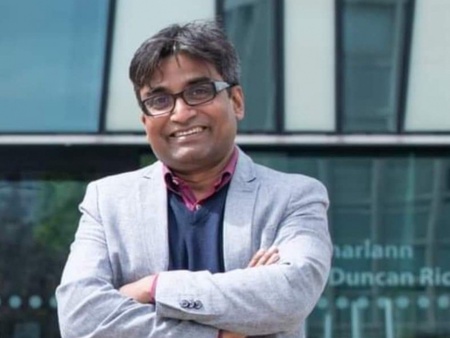An Aberdeen academic has joined an international group of experts providing advice on human rights and labour-related standards to organisations around the world.
Professor Muhammad Azizul Islam, Chair in Accountancy and Professor in Sustainability Accounting and Transparency at the Business School, has been invited to join the Global Sustainability Standards Board’s (GSSB) Labor Technical Committee advisory group, a panel providing advice on existing human rights and labour-related disclosures.
One of 11 experts from multi-stakeholder backgrounds, Professor Islam will also provide support to the Committee when it comes to developing new content.
GSSB is part of Global Reporting Initiative (GRI), the global leader for impact reporting, delivering best practice on how organisations communicate and demonstrate accountability for their impacts on the environment, economy and people.
It provides the world's most widely used sustainability reporting standards, which cover topics that range from biodiversity to human rights and labour, tax, waste to emissions, diversity and equality to health and safety. As such, GRI reporting is the enabler for transparency and dialogue between companies and their stakeholders.
Professor Islam grew up in an area in Dhaka, the capital city of Bangladesh, surrounded by densely packed garment factories. He witnessed the tough life faced by garment workers and has made it his life's research work to bring change.
Over the past 17 years, he has been investigating the use of social audits and disclosures in relation to the lives of those who work in garment factories based in the global south that supply goods to big retailers in the global north. His research collaborations are currently underway with international institutions and researchers based in Australia, Bangladesh, Canada, Egypt, New Zealand, Nigeria, Portugal and the USA.
Speaking about his appointment, Professor Islam said: “I am honoured to have been selected to join this advisory group and contribute to increasing accountability and enhancing transparency on their contribution to sustainable development.”


